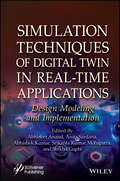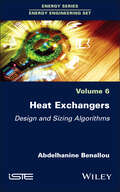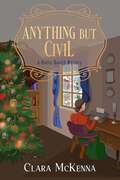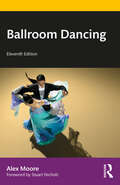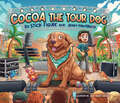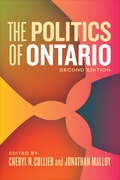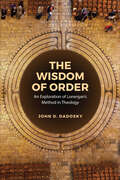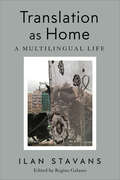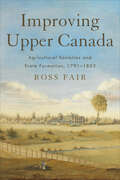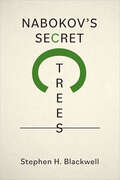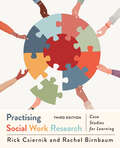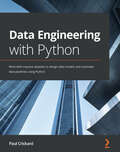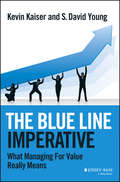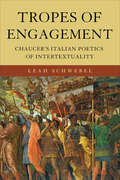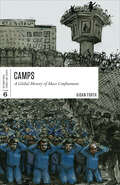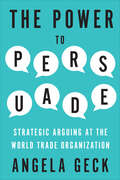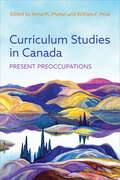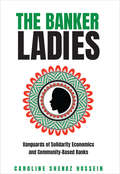- Table View
- List View
En voz alta: Español para hispanohablantes 2
by Paula Hidalgo Janet Boring Evelyn GalindoNIMAC-sourced textbook
Simulation Techniques of Digital Twin in Real-Time Applications: Design Modeling and Implementation
by Abhishek Kumar Shikha Gupta Abhineet Anand Anita Sardana Srikanta Kumar MohapatraSIMULATION TECHNIQUES OF DIGITAL TWIN IN REAL-TIME APPLICATIONS The book gives a complete overview of implementing digital twin technology in real-time scenarios while emphasizing how this technology can be embedded with running technologies to solve all other issues. Divided into two parts with Part 1 focusing on simulated techniques in digital twin technology and Part 2 on real-time applications of digital twin technology, the book collects a significant number of important research articles from domain-specific experts. The book sheds light on the various techniques of digital twin technology that are implemented in various application areas. It emphasizes error findings and respective solutions before the actual event happens. Most of the features in the book are on the implementation of strategies in real-time applications. Various real-life experiences are taken to show the proper implementation of simulation technologies. The book shows how engineers of any technology can input their research ideas to convert to real scenarios by using replicas. Hence, the book has a collection of research articles from various engineers with expertise in different technologies from many regions of the world. It shows how to implement the embedded real-time data into technologies. Specifically, the chapters relate to the auto landing and cruising features in aerial vehicles, automated coal mining simulation strategy, the enhancement of workshop equipment, and implementation in power energy management for urban railways. This book also describes the coherent mechanism of digital twin technologies with deep neural networks and artificial intelligence. Audience Researchers, engineers, and students in computer science, software engineering and industrial engineering, will find this book to be very useful.
Heat Exchangers: Design and Sizing Algorithms
by Abdelhanine BenallouThe last few decades have seen huge developments in the use of concentrated solar power plants, communications technologies (mobile telephony and 5G networks), the nuclear sector with its small modular reactors and concentrated solar power stations. These developments have called for a new generation of heat exchangers. As well as presenting conventional heat exchangers (shell-and-tube and plate heat exchangers), their design techniques and calculation algorithms, Heat Exchangers introduces new-generation compact heat exchangers, including printed circuit heat exchangers, plate-fin heat exchangers, spiral heat exchangers, cross-flow tube-fin heat exchangers, phase-change micro-exchangers, spray coolers, heat pipe heat exchangers and evaporation chambers. This new generation of heat exchangers is currently undergoing a boom, with applications in on-board equipment in aircraft, locomotives, space shuttles and mobile phones, where the volume of the equipment is one of the most important design parameters.
Anything But Civil (A\hattie Davish Mystery Ser. #2)
by Anna Loan-WilseyIn this historical mystery from the &“superb&” Hattie Davish series, the traveling secretary discovers some Civil War grudges are still deadly twenty-five years on (Library Journal). Hattie Davish is delighted to be ably assisting her wealthy employer, Sir Arthur Windom-Greene, an English scholar who is fascinated by the American Civil War and who is hard at work putting together a definitive biography of Union general Cornelius Starrett. Their research takes them to the small town of Galena, Illinois, where they quickly learn that the twenty-five years since the war&’s end have done little to heal old wounds. Distrust and betrayal seem to linger in everyone&’s minds—none more so than General Starrett&’s own pompous son, Henry. Hattie is certain he has something to do with a string of bizarre incidents that have recently plagued the town—and her suspicions are bluntly confirmed when the much-disliked Henry turns up dead. Between her work for Sir Arthur, preparing for Christmas, and unscheduled visitors from her past, Hattie hardly has time to investigate a murder—but her curiosity prevails, and she soon finds herself lost in a labyrinth of secrets and deceit that leads to more questions than answers . . . The bestselling author of A Lack of Temperance continues her Victorian-era mystery series that Emily Brightwell calls &“a welcome addition to the genre.&”
Cities, Citizenship and Jews in France and the United States, 1905–2022 (Routledge Studies in Modern History)
by Josef W. KonvitzThis comparative, transatlantic two-volume work covers nearly 120 years of the history of the rights, integration, and security of the Jewish people in both the United States and France, the countries with the largest and third-largest Jewish populations.Religious freedom and secularism have evolved differently in France and the United States, reinforcing their separate national identities. Yet there are parallels to their Jewish history, and in how the security of Jews has repeatedly defined and tested the national interests of France and the United States in world affairs. Drawing on the author’s personal experience as an international civil servant, these volumes explore topics such as tensions and common interests between France and the United States, the memory of the Shoah, social mobility, the tepid commitment of the United States to the rights of French Jews during World War II, trends in antisemitism and tolerance, and global climate change as a threat to largely coastal Jewish communities. They highlight what makes insecurity different in the 21st century and why a paradigm shift in policy is needed.This title is intended both for a general audience and advanced undergraduate and graduate students interested in Jewish history, urban history and international relations.
Ballroom Dancing
by Alex MooreNow in its eleventh edition, this classic and comprehensive handbook has been revised to bring it up to date with changes on the dance floor and in the rules of dance competitions.The Quickstep, Waltz, Foxtrot, and Tango are all illustrated and described in great detail, as well as the versions of most dances approved for championships. Diagrams demonstrate every step from both the Leader’s and Follower’s perspectives, and a collection of photographs new to this edition celebrate the diverse range of dancers involved with ballroom.This is the go-to book for dancers, competition judges, teachers, and anyone who needs to be at the forefront of today’s ballroom technique, from amateur practice to international championships.
Cocoa the Tour Dog: A Children's Picture Book
by Adam Mansbach Stick Figure#1 best-selling reggae artist Stick Figure (Scott Woodruff) and #1 New York Times best-selling author Adam Mansbach team up for a sweet, funny children's picture book about a real-life rescue dog turned worldwide icon Cocoa the Tour Dog is the saga of an Australian shepherd who meets her soul mate: a struggling musician, Scott, with dreams of spreading love on stages across the globe. When Scott's work starts to pay off, Cocoa wanders onstage herself and finds sudden fame—and the two of them embark on an adventure that takes them around the world playing music, delighting fans, and ignoring leash laws. But as the pace of life quickens, Cocoa begins to feel worn out—she misses the simpler times, and she's no longer seeing the world with puppy eyes. Luckily, Scott has just the thing to restore Cocoa's sense of wonder: a little sister dog. The two of them set off on an adventure to add Molly to the family, and soon Cocoa is teaching the puppy all about life on the road . . . and even how to take it to the stage.
Contemporary Employment Law, Fourth Edition (Aspen College Ser.)
by C. Kerry Fields and Henry R. CheesemanThe Politics of Ontario: Second Edition
by Cheryl N. Collier Jonathan MalloyOntario is the most populous province in Canada and perhaps the most complex. It encompasses a range of regions, cities, and local cultures, while also claiming a long-standing pre-eminence in Canadian federalism. The second edition of The Politics of Ontario aims to understand this unique and ever-changing province. The new edition captures the growing diversity of Ontario, with new chapters on race and Ontario politics, Black Ontarians, and the relationship of Indigenous Peoples and Ontario. With contributors from across the province, the book analyses the political institutions of Ontario, key areas such as gender, Northern Ontario, the intricate Ontario political economy, and public policy challenges with the environment, labour relations, governing the GTA, and health care. Completely refreshed from the earlier edition, it emphasizes the evolution of Ontario and key public policy challenges facing the province. In doing so, The Politics of Ontario provides readers with a thorough understanding of this complicated province.
The Wisdom of Order: An Exploration of Lonergan’s Method in Theology (Lonergan Studies)
by John DadoskyIn 1972, renowned Canadian philosopher and theologian Bernard Lonergan published Method in Theology. Now, following the fiftieth anniversary of his landmark work, The Wisdom of Order presents the next step in advancing the thought of this significant religious theorist. In addition to the previously compiled Collected Works of Bernard Lonergan, this book aims to provide an appreciation and exploration of Method in Theology. It analyses the first five chapters of the work with commentaries to help readers traverse Lonergan’s thought more effectively and deeply. John D. Dadosky presents compelling exposition and observations to assist readers. The book explores questions related to the philosophical status of beauty, which Lonergan does not address. In addition to Lonergan’s three stages of meaning, the book also seeks to develop a fourth stage that pertains to the turn to alterity emphasizing positive relations with other cultures and religions. As a result, The Wisdom of Order critically analyses an important groundbreaking work while also highlighting areas for further development.
Translation as Home: A Multilingual Life
by Ilan StavansTranslation as Home is a collection of autobiographical essays by Ilan Stavans that eloquently and unequivocally make the case that translation is not only a career, but a way of life. Born in Mexico City, Ilan Stavans is an essayist, anthologist, literary scholar, translator, and editor. Stavans has changed languages at various points in his life: from Yiddish to Spanish to Hebrew and English. A controversial public intellectual, he is the world’s authority on hybrid languages and on the history of dictionaries. His influential studies on Spanglish have redefined many fields of study, and he has become an international authority on translation as a mechanism of survival. This collection deals with Stavans’s three selves: Mexican, Jewish, and American. The volume presents his recent essays, some previously unpublished, addressing the themes of language, identity, and translation and emphasizing his work in Latin American and Jewish studies. It also features conversations between Stavans and writers, educators, and translators, including Regina Galasso, the author of the introduction and editor of the volume.
Improving Upper Canada: Agricultural Societies and State Formation, 1791–1852
by Ross FairAgricultural societies founded in the colony of Upper Canada were the institutional embodiment of the ideology of improvement, modelled on contemporary societies in Britain and the United States. In Improving Upper Canada, Ross Fair explores how the agricultural improvers who established and led these organizations were important agents of state formation. The book investigates the initial failed attempts to create a single agricultural society for Upper Canada. It examines the 1830 legislation that publicly funded the creation of agricultural societies across the colony to be semi-public agents of agricultural improvement, and analyses societies established in the Niagara, Home, and Midland Districts to understand how each attempted to introduce specific improvements to local farming practices. The book reveals how Upper Canada’s agricultural improvers formed a provincial association in the 1840s to ensure that the colonial government assumed a greater leadership role in agricultural improvement, resulting in the Bureau of Agriculture, forerunner of federal and provincial departments of agriculture in the post-Confederation era. In analysing an early example of state formation, Improving Upper Canada provides a comprehensive history of the foundations of Ontario’s agricultural societies today, which continue to promote agricultural improvement across the province.
Nabokov’s Secret Trees
by Stephen H. BlackwellIn nearly all his literary works, Vladimir Nabokov inscribed networks of trees to create meaningful patterns of significance around one or more of his passionate interests – in consciousness, memory, creativity, epistemology, ethics, and love, with a deep connection to nature serving as a constant undercurrent. Nabokov’s Secret Trees explores this neglected area of his art, one that positions nature as a hidden but vital core of his work. The book presents an entirely new, previously unsuspected Nabokov, one who crafts intricate patterns of arboreal imagery lurking behind his often-baroque psychological narratives. It reveals how Nabokov activates arboreal potentials by exploring the hidden ubiquity of trees, their essence as complex natural phenomena, and their role as quiet presences that have accompanied and fostered human civilization and art since their beginnings. The book uncovers how trees offer a rich and intricate field for structural, semantic, allusive, and metaphorical exploration. Based on the published corpus as well as archival materials, Nabokov’s Secret Trees demonstrates that trees not only populate Nabokov’s art in stunning, yet furtive, abundance, but also as mysterious natural entities, directly animating his works’ worlds and his readers’ experience of them.
Practising Social Work Research: Case Studies for Learning, Third Edition
by Rick Csiernik Rachel BirnbaumResearch skills are as critical to social work practitioners as skills in individual and group counselling, policy analysis, and community development. Adopting strategies similar to those used in direct practice courses, this book integrates research with social work practice, and in so doing promotes an understanding and appreciation of the research process. The third edition of Practising Social Work Research comprises twenty-seven case studies that illustrate different research approaches, including quantitative, qualitative, single-subject, and mixed methods. The third edition also adopts a greater equity, diversity, and inclusivity focus than the previous editions. Through the use of applied, real-life examples, the authors demonstrate the processes of conceptualization, operationalization, sampling, data collection and processing, and implementation. Designed to help the student and practitioner become more comfortable with research procedures, Practising Social Work Research capitalizes on the strengths that social work students bring to assessment and problem solving.
Data Engineering with Python: Work with massive datasets to design data models and automate data pipelines using Python
by Paul CrickardBuild, monitor, and manage real-time data pipelines to create data engineering infrastructure efficiently using open-source Apache projectsKey FeaturesBecome well-versed in data architectures, data preparation, and data optimization skills with the help of practical examplesDesign data models and learn how to extract, transform, and load (ETL) data using PythonSchedule, automate, and monitor complex data pipelines in productionBook DescriptionData engineering provides the foundation for data science and analytics, and forms an important part of all businesses. This book will help you to explore various tools and methods that are used for understanding the data engineering process using Python. The book will show you how to tackle challenges commonly faced in different aspects of data engineering. You’ll start with an introduction to the basics of data engineering, along with the technologies and frameworks required to build data pipelines to work with large datasets. You’ll learn how to transform and clean data and perform analytics to get the most out of your data. As you advance, you'll discover how to work with big data of varying complexity and production databases, and build data pipelines. Using real-world examples, you’ll build architectures on which you’ll learn how to deploy data pipelines. By the end of this Python book, you’ll have gained a clear understanding of data modeling techniques, and will be able to confidently build data engineering pipelines for tracking data, running quality checks, and making necessary changes in production.What you will learnUnderstand how data engineering supports data science workflowsDiscover how to extract data from files and databases and then clean, transform, and enrich itConfigure processors for handling different file formats as well as both relational and NoSQL databasesFind out how to implement a data pipeline and dashboard to visualize resultsUse staging and validation to check data before landing in the warehouseBuild real-time pipelines with staging areas that perform validation and handle failuresGet to grips with deploying pipelines in the production environmentWho this book is forThis book is for data analysts, ETL developers, and anyone looking to get started with or transition to the field of data engineering or refresh their knowledge of data engineering using Python. This book will also be useful for students planning to build a career in data engineering or IT professionals preparing for a transition. No previous knowledge of data engineering is required.
Progress, English Language Arts, Level E
by Robert M. Johnson Kathy W. Dames Lillie LewisNIMAC-sourced textbook
The Blue Line Imperative: What Managing for Value Really Means
by Kevin Kaiser S. David YoungA groundbreaking guide to making profitable business decisions Do you wonder why your value initiatives aren't providing the payoff you'd hoped for? Could it be because you've been thinking about value all wrong? According to the authors of this groundbreaking guide, there's a very good chance that you have. Using examples from leading companies worldwide, they explain why every decision a company makes either creates value or detracts from it, and why, if they hope to survive and thrive in today's increasingly competitive global marketplace, company leaders must make value-creation the centrepiece of every business decision. Authors Kaiser and Young have dubbed this approach "Blue-Line Management," (BLM), and in this entertaining, highly accessible book, they delineate BLM principles and practices and show you how to implement them in your company. Explains why the failure to properly define and assess value often makes it difficult for the people who manage businesses to effect long-term success Offers guidelines for making the satisfaction of customer needs and wants—i.e. value creation—the driver of all business activities The authors are respected academics at INSEAD, the world's largest and most respected graduate business school, with campuses in Europe, Asia and the Middle East
Tropes of Engagement: Chaucer’s Italian Poetics of Intertextuality
by Leah SchwebelWhile scholars have long explored connections between Chaucer and Boccaccio, relatively few have asked why Chaucer makes such a habit of obscuring the influence of his favourite vernacular author. Tropes of Engagement asks the question of what motivated Chaucer to camouflage his debt to his most prominent, yet never named, Italian source: Giovanni Boccaccio. Leah Schwebel boldly claims that when Chaucer erases Boccaccio, he is mimicking strategies of translation practiced by his classical and continental predecessors. Tracing popular narratives from antiquity to the late Middle Ages, including the Knight’s Tale, the Clerk’s Tale, the Monk’s Tale, Troilus and Criseyde, and Lydgate’s Fall of Princes and Troy Book, Schwebel argues that authorial erasure, invention, and manipulation are recognizable literary tropes of engagement that poets employ to suggest their connection to, and place within, a broader authorial tradition. Combining an attention to the cultural, historical, and material circumstances surrounding literary production with a mode of source study that looks beyond discernable influence, Tropes of Engagement recognizes authors self-consciously erasing and misreading each other as part of a process of mutual and self-promotion.
Camps: A Global History of Mass Confinement (International Themes and Issues #6)
by Aidan ForthThe concentration of terrorists, political suspects, ethnic minorities, prisoners of war, enemy aliens, and other potentially “dangerous” populations spans the modern era. From Konzentrationslager in colonial Africa to strategic villages in Southeast Asia, from slave plantations in America to Uyghur sweatshops in Xinjiang, and from civilian internment in World War II to extraordinary rendition at Guantanamo Bay, mass detention is as diverse as it is ubiquitous. Camps offers a short but compelling guide to the varied manifestations of concentration camps in the last two centuries, while tracing provocative transnational connections with related institutions such as workhouses, migrant detention centers, and residential schools.
The Power to Persuade: Strategic Arguing at the World Trade Organization
by Angela GeckThe Power to Persuade provides an innovative and eye-opening analysis of strategic arguing as a means of power in global politics. Based on an empirical case study of arguing processes in the World Trade Organization (WTO), the book shows how discursive contexts, institutional norms and procedures, and unequal human resources condition who has the power to persuade. While accounts of arguing in international relations are typically based on a notion of arguing as a power-free mode of interaction oriented towards understanding, Angela Geck shows how such an approach precludes the question of persuasive power. Drawing on in-depth interviews with Geneva diplomats and a document-based analysis of the negotiations on two Doha Round issues, the book examines the practices governing strategic arguing in the WTO and uncovers two sources of persuasive power: firstly, prevalent discourses and connected regime norms empower some actors over others; secondly, their ability to debate is conditioned by exclusionary procedures and unequal human resources. Offering a grounded theory of strategic arguing in trade politics, The Power to Persuade presents a novel analysis of the relationship between arguing and power.
Curriculum Studies in Canada: Present Preoccupations
by William F. Pinar Anne M. PhelanThe largest specialization in faculties of education in Canada is curriculum studies. Curriculum Studies in Canada represents the present preoccupations of curriculum scholars in Canada. Set against the backdrop of the COVID-19 pandemic, contributors engage with significant themes, among them ongoing efforts at justice for Indigenous Peoples, the continuing arrival of immigrants and refugees, Canada’s complex relationship to the United States, and issues related to the climate crisis. Addressing such realities through the field of curriculum studies and the school curriculum is critical at this historical conjuncture given the complex and shifting intersections of local and global dynamics restricting education. To this end, contributing scholars serve as intellectual activists to address the critical need for understanding curriculum responsive to the vexed relations among schools, nation-building, social reconstruction, and identity development. Their activism yields more sophisticated understandings of what it means to be educated in Canada. Contributors trace the legacy of their work and reflect on their present scholarly preoccupations in light of their past endeavours. In doing so, Curriculum Studies in Canada offers an invitation to readers: to study, remember, dialogue, and navigate an uncertain world with them.
The Banker Ladies: Vanguards of Solidarity Economics and Community-Based Banks
by Caroline Shenaz HosseinAll over the world, Black and racialized women engage in the solidarity economy through what is known as mutual aid financing. Formally referred to as rotating savings and credit associations (ROSCAs), these institutions are purposefully informal to support the women’s livelihoods and social needs, and they act to reject tiered forms of neo-liberal development. The Banker Ladies – a term coined by women in the Black diaspora – are individuals that voluntarily organize ROSCAs for self-sufficiency and are intentional in their politicized economic co-operation to counter business exclusion. Caroline Shenaz Hossein reveals how Black women redefine the banking co-operative sector to be inclusive of informal institutions that are democratic and focused on group consensus, and which build an activist form of economic co-operation that is intent on making social profitability the norm. The book examines the ways in which diasporic Black women, who organize mutual aid, receive little to no attention. Unapologetically biased towards a group of women who have been purposely sidelined and put down for what they do, The Banker Ladies highlights how, in order to educate oneself about their contributions to politics and economics, it is imperative to listen to the voices of hundreds of Black women in charge of financial services for their communities.

